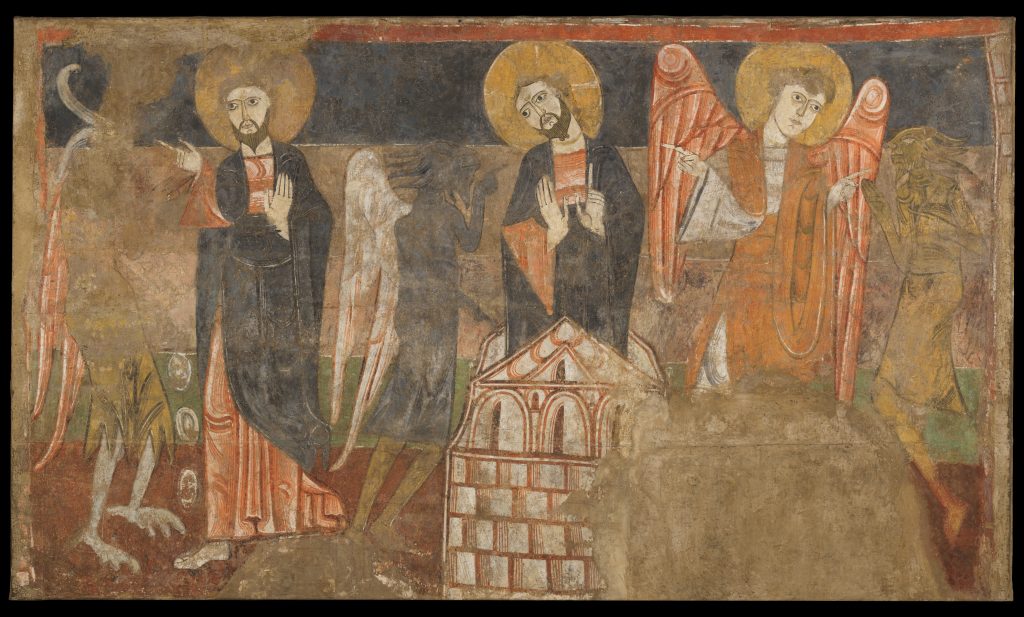Many of us are familiar with an often-quoted line from T.S. Eliot: “The last temptation is the greatest treason; to do the right deed for the wrong reason.” This, he suggests, is the temptation of the good person. What’s the temptation?
In John’s Gospel, Jesus asks his listeners this question: “How can you believe who receive glory from one another and do not seek the glory that comes from God?” What’s Jesus’ challenge here? This: We can do all the right things, be doggedly faithful, resist every kind of compromise, and even accept martyrdom — but why? To be respected? To be admired? To win approval? To win a permanent good name for ourselves?
Aren’t these good, noble enough reasons?
They are. However, as T.S. Eliot suggests in “Murder in the Cathedral,” a temptation can present itself as a grace, and that can be the case in terms of being virtuous. He illustrates this through the struggles of his main character, Thomas à Beckett. Beckett was the archbishop of Canterbury from 1162 until he was murdered in his own cathedral in 1170.
As Eliot presents him, Beckett does all the right things. He is altruistic, radically faithful, resists all compromise, and is ready to accept martyrdom. However, as Eliot highlights, these can be “the temptations of the good person,” and it can take some time (and a deeper maturity) to distinguish certain temptations from grace. Hence, Eliot coined these now-famous lines:
Now is my way clear; now is the meaning plain: / Temptation shall not come in this kind again. / The last temptation is the greatest treason: / To do the right deed for the wrong reason. … / For those who serve the greater cause / Make the cause serve them.
Those who serve the greater cause can easily make the cause serve them, blind to their own motivation.
Don’t we all know it! Those of us who work in ministry, in teaching, in administration, in the media, in the arts, and those of us who are habitual good Samaritans helping out everywhere, what ultimately drives our energy as we do all this good?
Well, motivation is rarely simply straightforward. We are a complex, often tortured creatures of motivation. Here’s a little parable vis-à-vis motivation from the Sufi tradition that suggests that we don’t have a single motivation but have multiple motivations. The parable runs this way.
There was a holy man, a guru, renowned for his wisdom who lived near the top of a mountain. One day three men showed up at his door, seeking counsel. He questioned the first one: “Did you climb up this mountain to see me because I’m famous or because you truly are interested in gaining some wisdom?” The man answered, “To be truthful, I came to see you because of your fame, though, of course, I’m also interested in receiving some counsel.” The guru dismissed him, “You aren’t yet ready to learn.”
He turned to the second man and asked him the same question, “What’s the real reason you climbed up this mountain to see me?” This man’s answer was different. “It’s not your fame that drew me here,” he said, “I’m not interested in that. I want to learn from you.” Surprisingly, the Guru also dismissed him, telling him that he was not yet ready to learn.
He turned to the third man: “Did you climb this mountain to see me because I’m famous or because you truly seek some counsel?” The man replied, “To be honest, it’s for both reasons, and probably for a good number of other reasons that I am unaware of. I did want to see you because you are famous and I do really want to learn from you, and I am not even sure that either of them is the real reason I came to see you.” “You’re ready to learn,” said the holy man.
Eliot presents his main character in “Murder in the Cathedral” as a man who does all the right things, is recognized for his goodness, but is someone who still has to examine himself as to his real motivation for doing what he does. What Eliot highlights is something that should give all of us who are trying to be good, virtuous, faithful persons, pause for reflection, scrutiny, and prayer.
What’s our real motivation? How much is this about helping others and how much is it about ourselves, about gaining respect, admiration, a good name — and having a good feeling about ourselves?
This is a hard question and perhaps not even a fair one, but a necessary one which, if asked, can aid us in our quest for a deeper level of maturity. In the end, are we doing good things because of what it does for others or because of what it does for us?
As we stand somewhat naked and exposed before this question, we can take some consolation in the message contained in the Sufi parable. This side of eternity our motivations are pathologically complex and mixed.

